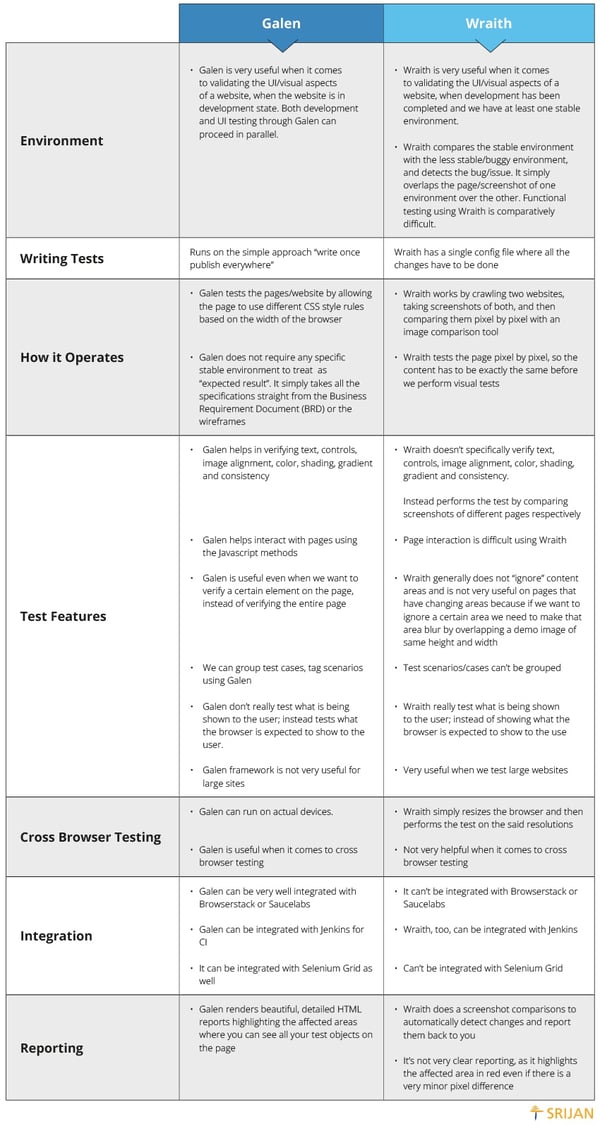With enterprises wanting to offer optimal viewing and interaction experiences across devices, there’s increasing emphasis on building responsive websites. And hence, visual testing has become a key component of the QA process. Additionally, there are several tools available to perform visual testing, and QA teams need to be able to choose the right one, depending upon project requirements.
Recently, our QA team was engaged with an Australian insurance enterprise, carrying out manual testing, and device/browser testing for all their new website features. During the engagement, the client also requested automated visual testing for their website.
We proposed the open-source Galen tool. However, since the client already had a stable environment, it was decided that the Wraith tool would be better suited to the project. And so we used Wraith to run tests on each deployment on the production environment, validating CSS, image comparison, styling, and other visual aspects.
This got us thinking about the key differences between Galen and Wraith, and how they are suited for different project requirements. So here we take a quick look at the two most prevalent visual regression tools, comparing them on the basis of features, best use cases, advantages, and drawbacks, to help decide upon the one that is best suited for your enterprise project.

So that was our handy chart to help you compare between Galen and Wraith. Decide the parameters that are the most important for your project, whether it’s the environment, or integration capabilities, or cross-browser testing, and check out how the two tools stack up. And then choose the one that works best for you.
Once you have locked down your tool, your in-house QA team can get started with it. However, if you wish to onboard a QA Automation team, just write to us below and let’s explore how we can help.
Our Services
Customer Experience Management
- Content Management
- Marketing Automation
- Mobile Application Development
- Drupal Support and Maintanence
Enterprise Modernization, Platforms & Cloud
- Modernization Strategy
- API Management & Developer Portals
- Hybrid Cloud & Cloud Native Platforms
- Site Reliability Engineering




